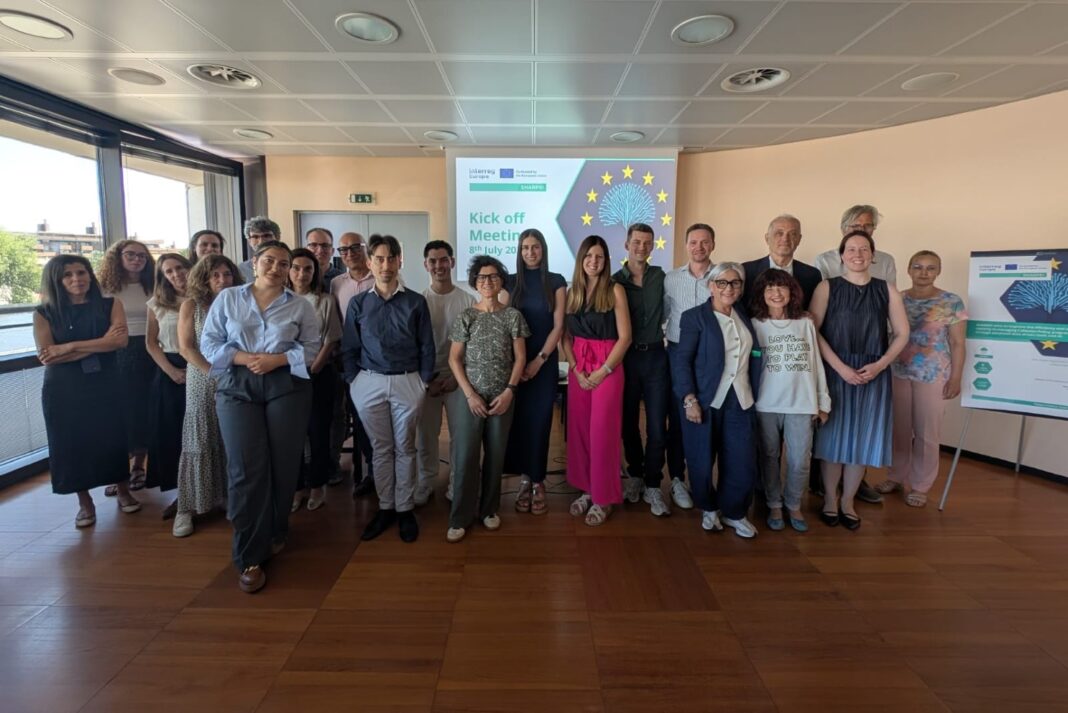Leaders gather in Kraków to push for faster trials, smarter funding, and united policies
Europe is at a crossroads in health research and innovation. Despite world-class science, it is falling behind in clinical trials, investment, and regulatory agility. The urgency to reverse this trend brought together over 400 policymakers, researchers, industry leaders, and patient advocates in Kraków in May 2025 at the LifeScience4EU Conference. This event was a policy forum but also a collective effort to rethink how Europe can lead again in medical research by aligning national and EU strategies, accelerating clinical development, and restoring public trust.
The conference was held under the auspices of the Polish Presidency of the Council of the European Union. It was coordinated by the Polish Ministry of Health in collaboration with the European Commission’s Directorate-General for Health and Food Safety and Directorate-General for Research and Innovation. Across two days of high-level discussions and technical sessions, participants debated how to strengthen Europe’s health R&I ecosystem through concrete alignment of policy, funding, and infrastructure across member states.
The costs of fragmentation in European health R&I
Despite its scientific excellence, Europe is gradually losing ground in global health innovation. Over the past decade, its share of global clinical trials has dropped from 25% to 19%, and investment in biotech and medtech remains significantly lower than in the United States or Asia. The fragmentation of regulatory frameworks, delayed approvals, and slow trial start-up times have weakened Europe’s competitiveness. According to the LifeScience4EU Conference report, nearly 50% of clinical trials in Europe experience delays due to administrative and operational hurdles.

These figures reflect a deeper structural challenge. The European health R&I landscape is still dominated by national-level processes, which often lack coordination and consistency. Disparities in infrastructure, ethics approvals, and data governance rules make cross-border collaboration slow and costly. While the EU Clinical Trials Regulation (CTR) has introduced a harmonised system, many speakers highlighted that implementation remains uneven.
The disconnect between policy ambitions and practical execution is a key concern for stakeholders.
The situation is even more critical when it comes to access to capital. EU-based biotechs typically have access to only 20% of the funding available to their US counterparts. This financing gap impacts the ability of small and mid-sized enterprises (SMEs) to scale up, bring new therapies to market, and remain competitive globally. In this context, LifeScience4EU was conceived as a strategic opportunity to assess current weaknesses and define actionable solutions for a stronger, more integrated European ecosystem.
Towards a unified framework for medical Innovation
One of the central goals of the LifeScience4EU Conference was to improve policy alignment between national and EU-level initiatives. The call for a coordinated approach across all governance levels, from EU institutions to national governments, emerged as a recurring theme. Several sessions addressed the need for a common vision to guide investment, regulation, and strategic planning in the health R&I sector. Participants emphasised that building a competitive and sustainable innovation ecosystem requires shared priorities and long-term commitment. Fragmented funding schemes, inconsistent policy instruments, and a lack of coordination across Member States were identified as major obstacles to systemic progress.
The European Commission used the conference to outline its strategic direction for the post-2027 research framework. Key themes included the promotion of impact-driven funding mechanisms, improved integration of digital health tools, and a greater emphasis on unmet medical needs. According to the official report, future EU policies will also need to support innovation uptake and implementation by strengthening links between research, regulation, and healthcare systems.
Speakers also stressed the importance of a stronger interface between scientific excellence and industrial development. Several stakeholders, including national ministries and industry associations, called for better synergies between Horizon Europe, the EU4Health programme, and national recovery plans. The goal is to ensure that research efforts translate into scalable, patient-focused solutions.
Clinical trials need more speed and more Europe
Another recurring theme across multiple sessions was the urgent need to streamline the clinical trial ecosystem. While the EU Clinical Trials Regulation (CTR) has introduced a centralised submission process, the operational reality remains complex. Persistent delays due to national-level administrative bottlenecks, fragmented ethics review procedures, and incompatible digital infrastructures continue to undermine progress. These challenges not only hinder research but also discourage international sponsors from investing in European trials.

The Accelerating Clinical Trials in the EU (ACT EU) initiative was cited as a step in the right direction. It sets out ten priority areas, from decentralised trial methodologies to modernised infrastructures and improved trial designs, to reduce inefficiencies and increase the appeal of Europe as a hub for clinical innovation. Yet implementation remains slow, partly due to rigid technical specifications embedded in current regulations. «The legislation is very prescriptive and now 11 years old,» remarked Emer Cooke, Executive Director of the European Medicines Agency (EMA). A forward-looking ecosystem, she argued, must rely on up-to-date data and smarter regulatory frameworks to adapt to emerging science and patient needs.
Paweł Przewięźlikowski, CEO of Ryvu Therapeutics, took a bolder stance. In his view, the problem is not scientific complexity but insufficient integration and bureaucratic inertia. «We need more Europe, and more speed. The biggest issue is that European integration hasn’t gone far enough.» Comparing Europe’s slow approvals to the U.S. system, where biomarker-based accelerated approvals are increasingly common, he urged policymakers to rethink institutional design. «Why do we need national competent authorities at all? These offices could become satellite divisions of EMA, with a single European body approving clinical trials.» If full centralisation proves politically unfeasible, he proposed a «coalition of the willing» model, in which authorisation in one Member State would trigger mutual acceptance across others.
Why funding gaps still cripple biotech in Europe
The conference also shed light on Europe’s chronic underfunding of health research and its implications for innovation capacity. Multiple speakers pointed out that EU-based biotech companies secure only around 20% of the funding available to their US counterparts. This disparity has a direct impact on the pace and scope of research, particularly for SMEs and startups.
Przewięźlikowski illustrated this with a personal account: «We had to sometimes stop a project for months because we didn’t have $20,000 for an animal study. Public support for innovative drug discovery must continue uninterrupted, without all these caveats.»
Magdalena Bem-Andrzejewska from Poland’s National Centre for Research and Development offered a policy-level perspective, confirming that the next Multiannual Financial Framework (MFF) will likely include more impact-driven funding instruments. «The future of R&I is about impact-driven calls,» she said, adding that Horizon Europe already offers a mix of top-down and bottom-up mechanisms that could be further refined. The upcoming Competitiveness Funds, although still under wraps, are expected to prioritise strategic autonomy in health technologies.
Public investment in health needs public support
Speakers also recognised during the closing panel that public investment requires public legitimacy, reinforcing the need to communicate the value of research and build citizen support. A particularly pressing concern was how to persuade political leaders to prioritise investment in health when other demands, such as defence or economic stabilisation, dominate national agendas. For many citizens and policymakers, clinical trials still feel like «a discussion from another planet.»
In response, Andrzej Rys, principal Scientific Advisor at the European Commission, reflected on the COVID-19 pandemic as a rare moment when health moved to the top of the European political agenda. Since then, however, national health budgets have been shrinking. «We need to continue explaining this agenda to politicians and citizens, at all levels,» he stated, emphasising that while better communication is essential, this should not mean centralising everything at the EU level. Decisions must remain as close as possible to citizens, and wherever appropriate, at the national or local level, in line with the principle of subsidiarity. He also highlighted positive institutional shifts, such as the creation of the first-ever Health Committee in the European Parliament.
Magdalena Bem-Andrzejewska reinforced the importance of sustained civic engagement: «Public consultations under Horizon Europe are increasing, and so is citizens’ response. It’s just starting, but it’s promising.»
Concluding the session, Rys reiterated that the value of the conference lay not in drafting strategies, «an interesting but theoretical exercise», but in building collective capacity to act. The room had gathered representatives from across the ecosystem: pharma, medtech, hospitals, clusters, and city leaders. Turning strategy into impact, he insisted, requires an inclusive and ongoing process. «Writing a strategy is one thing, but making it actionable is up to all of us, not just the Commission colleagues holding the pen.»








